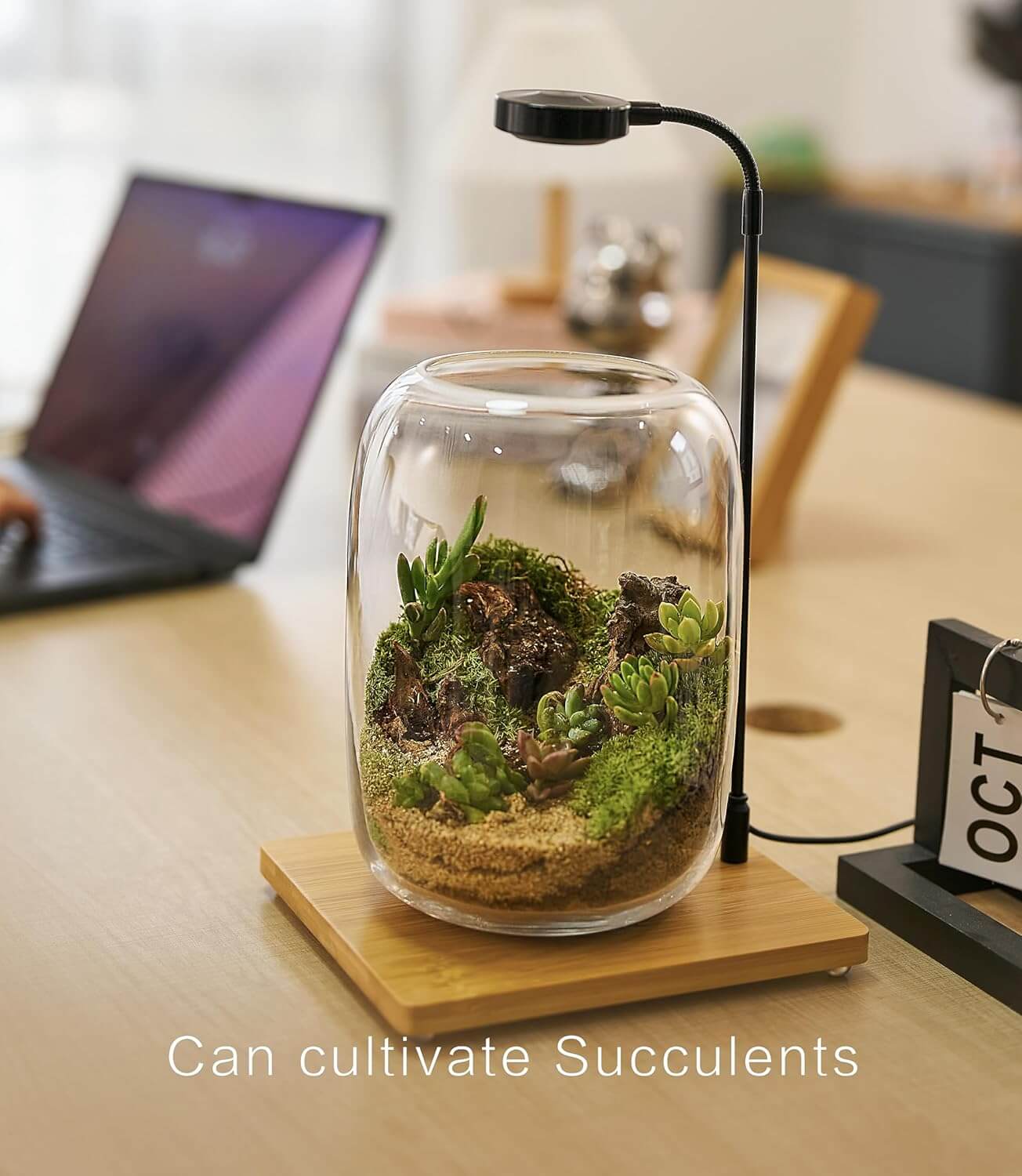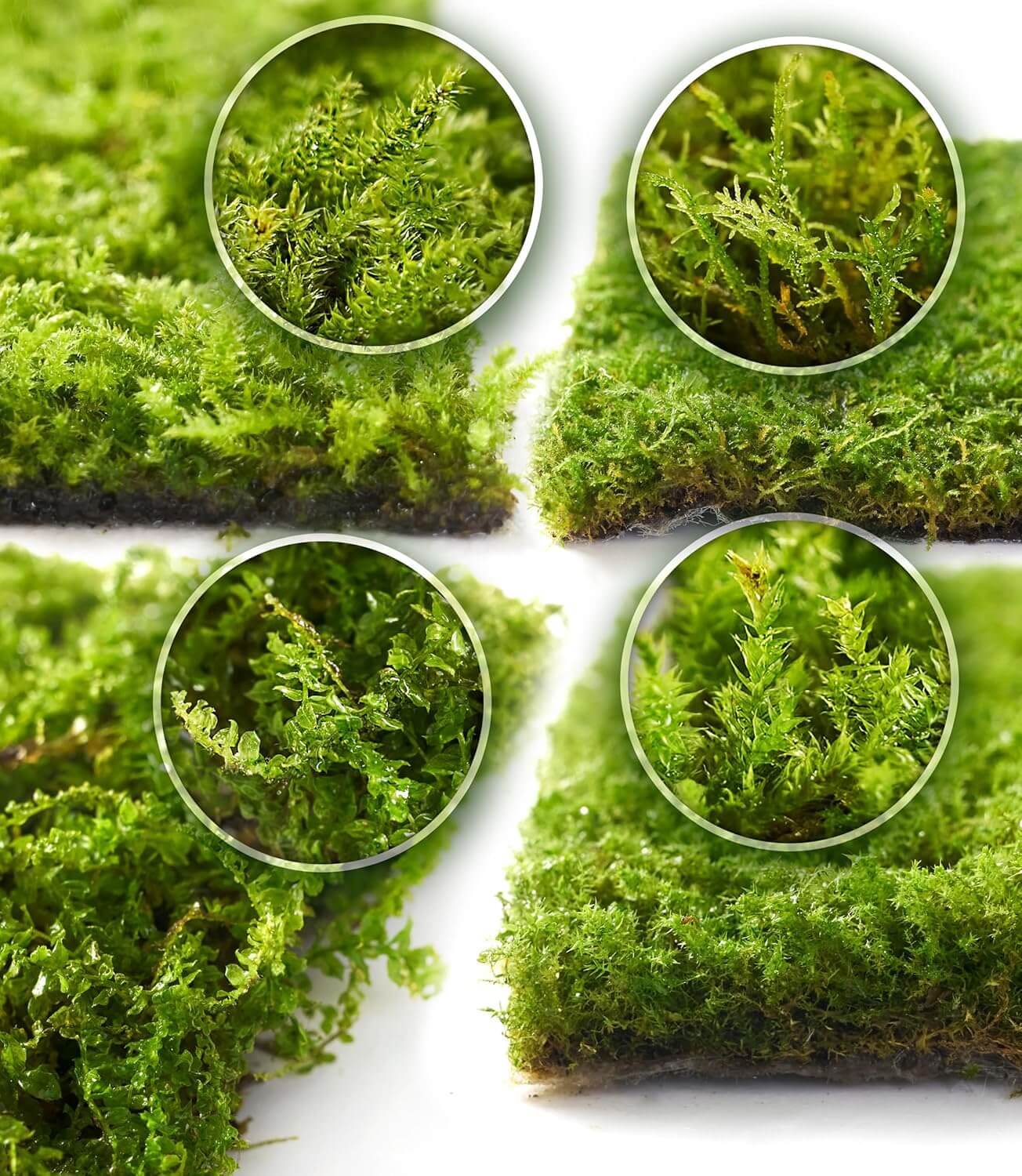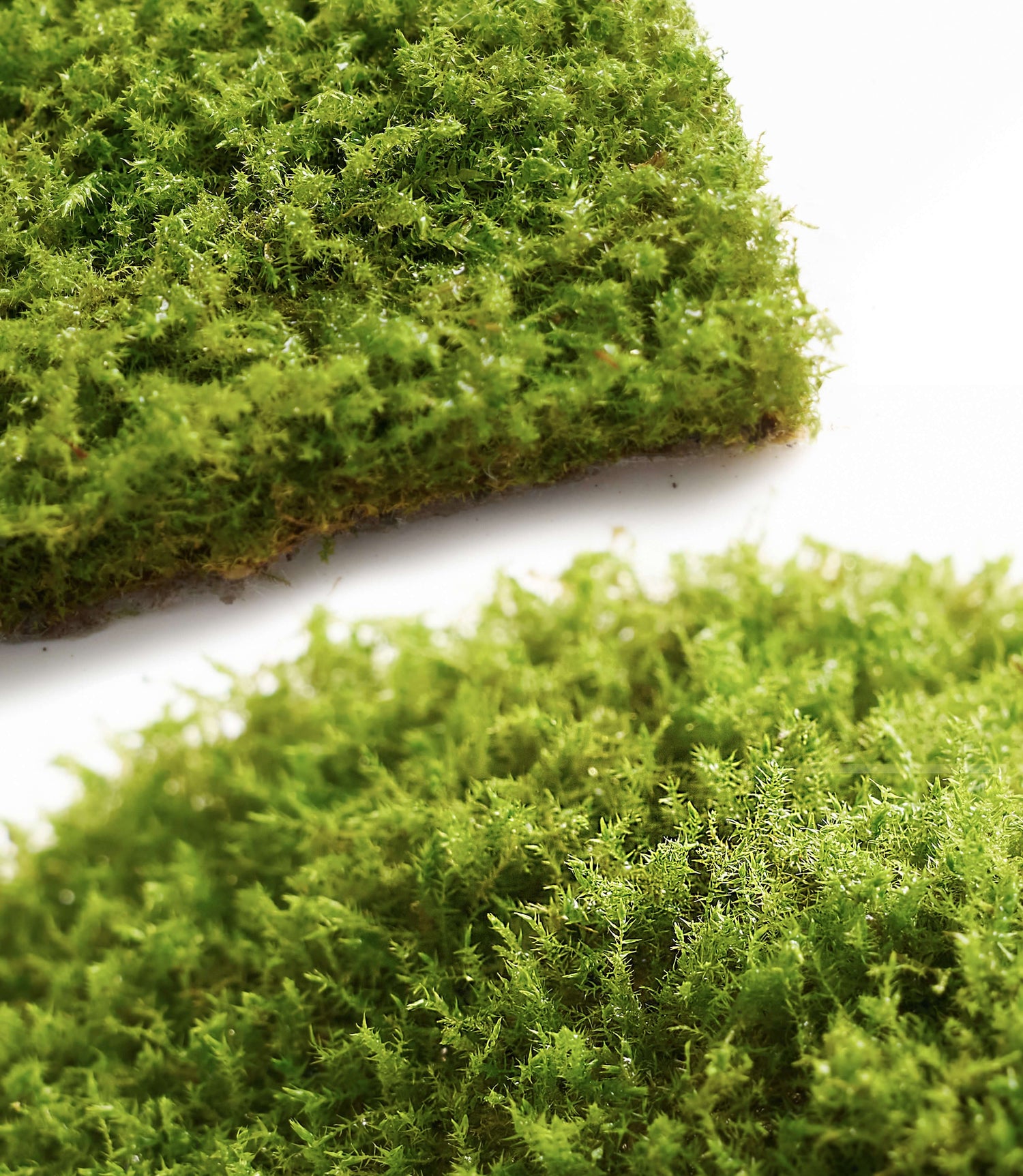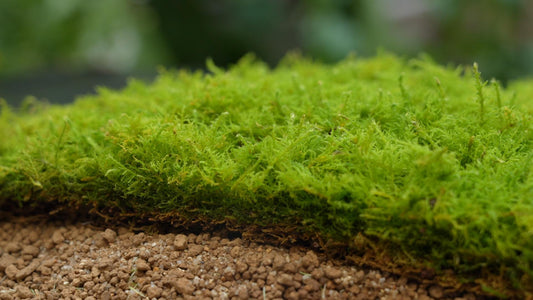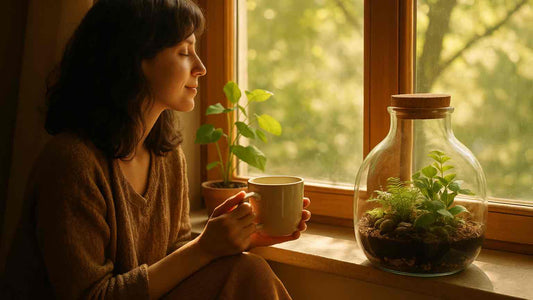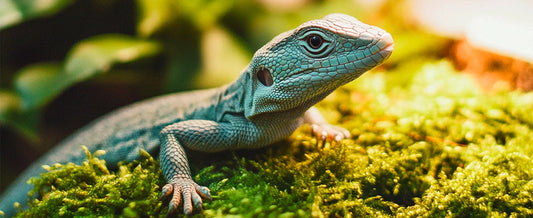A Guide to the Best Live Moss for Small Terrariums (and Why)
First, the answer:
Among all common live mosses, Leucobryum (Cushion Moss) is the best choice for small terrariums. It grows in dense, rounded clumps, resembling little green cushions in a small glass container – both cute and easy to care for.
👉 If you want a low-maintenance terrarium moss that looks visually appealing, Leucobryum is definitely a great choice.
Recommendation 1: Leucobryum (Cushion Moss) – Lush Green Cushions 🌱
- Visual appeal: Rounded, plump clumps, like little green balls, giving a soft, soothing feeling.
- Tactile experience: Soft and resilient after rehydration, like touching cotton.
- Suitability: The “star” terrarium moss for open jars; even without decorations, it looks beautiful. It can also thrive in closed terrariums with proper ventilation.
- Care advantages: Easy to maintain shape, low maintenance, and doesn’t spread quickly.
Shop Leucobryum Cushion Moss →

Recommendation 2: Haplocladium – Delicate Mini Carpet ✨
- Visual appeal: Like a layer of green velvet carpet, delicate and even.
- Tactile experience: Soft and detailed after rehydration, aesthetically pleasing.
- Suitability: Works beautifully in small closed terrariums, creating a “miniature lawn” effect. It naturally grows in moist places like under trees and on rocks.
- Care advantages: Quick to revive (3–5 minutes of misting), reusable.
Recommendation 3: Hypnum Moss – Delicate Green Ribbons 🍃
- Visual appeal: Long, slender leaves that naturally drape down, like ribbons of green.
- Tactile experience: Smooth and slightly cool to the touch when moist.
- Suitability: Ideal for the edges of closed terrariums or rock crevices; creates a flowing effect, but remember to ventilate regularly.
- Care advantages: Tolerates low light; retains moisture well.
Recommendation 4: Brachythecium Moss – A Classic Versatile Choice 🌿
- Visual appeal: Flat, spreading growth, uniform green color, giving a “stable and reliable” impression.
- Tactile experience: Soft and spongy when moist.
- Suitability: Great for both open and closed terrariums. It’s known for its adaptability.
- Care advantages: Beginner-friendly; easy to maintain and stable.
Key Points for Caring for Mini Glass Dome Plants 🌟
-
Watering frequency
- Summer: Closed domes about once a week; open domes every 3–4 days.
- Winter: Closed domes every 2 weeks; open domes every 5–7 days.
👉 Always check the moss before misting—only spray when it feels dry to the touch.
-
Light
Place the dome in bright, indirect light—for example, near a north-facing window, behind sheer curtains, or on a desk where daylight reflects. Avoid harsh midday sun, which may overheat the glass.
-
Ventilation
If you notice heavy condensation or water droplets forming on the inner glass walls, the humidity is too high. Open the lid for a few hours to balance the moisture.
-
Pruning
Regularly trim overgrown edges or remove discolored tips to keep the moss compact, fresh, and attractive.
👉 For more detailed care tips and troubleshooting, see our Complete Live Moss Care Guide.

Summary
If you only want to choose one moss that is most suitable for a mini glass dome, Leucobryum Cushion Moss is the answer. It grows lushly, forms a round shape, is easy to care for, and even when planted alone, it has excellent ornamental value.
Of course, depending on your preference and environment, you can also choose Haplocladium, Hypnum, or Brachythecium to create different effects.
FAQ
1) How long can live moss last in a closed terrarium?
With proper watering and venting, live moss can thrive months to years. In sealed jars, clear condensation within 3h to avoid mold.
2) Do I need soil under moss in a small glass terrarium?
No. Live moss anchors on rocks, wood, or drainage layers. Best stack: pebbles → thin sphagnum → mesh → moss.
3) Which live moss is best for beginners in mini terrariums?
- Closed jars: Haplocladium, Hypnum, Brachythecium (fast, even carpets).
- Open jars: add Leucobryum cushion moss as a focal mound.
4) How do I know if my terrarium is too humid?
Signs: condensation >3h, musty smell, white fuzz. Fix: open lid, wipe droplets, reduce misting.
5) Can I mix different mosses in one small terrarium?
Yes. Reliable mix: 1 carpet moss (Hypnum/Brachythecium/Haplocladium) + 1 focal cushion moss (Leucobryum). Don’t mix preserved with live moss.

